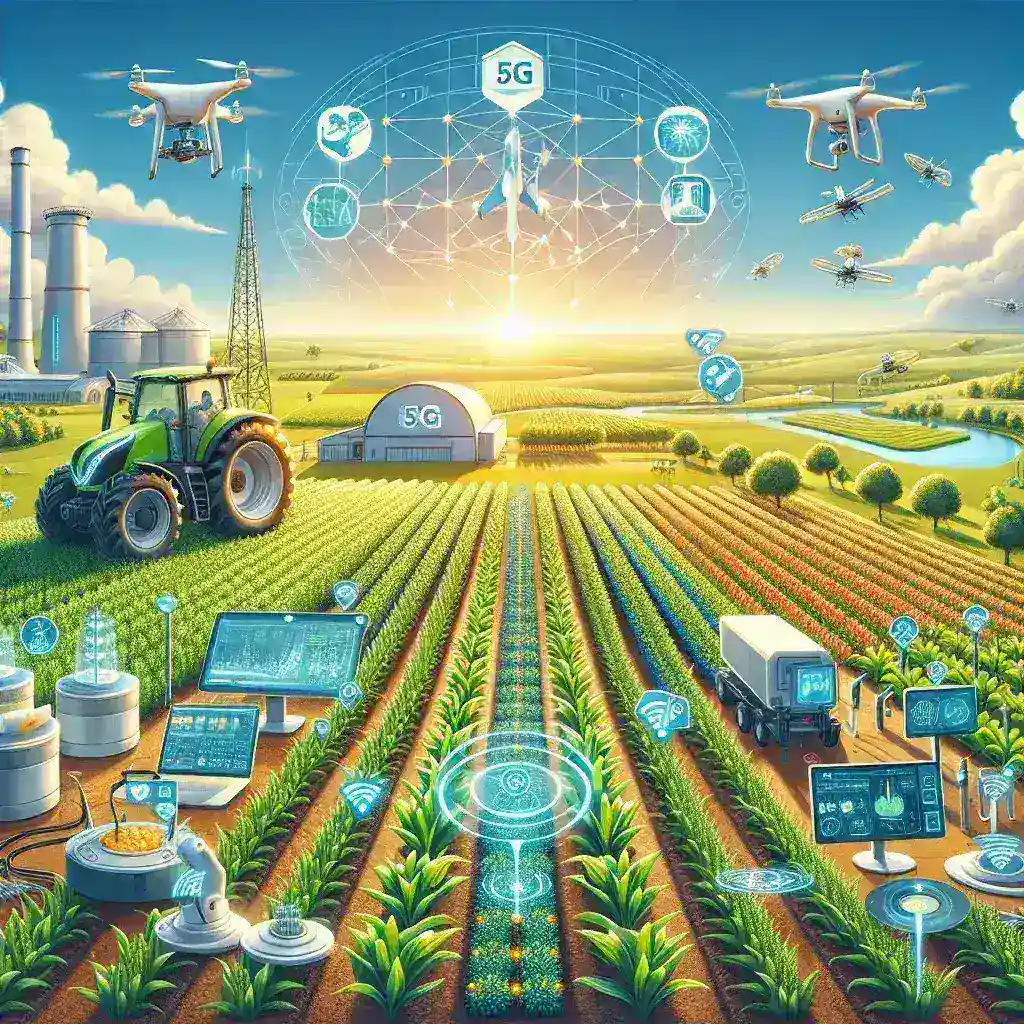Introduction
The agriculture industry is on the verge of a technological revolution, largely driven by the advent of 5G technology. This new generation of mobile networks promises to transform smart farming, enabling farmers to increase efficiency, productivity, and sustainability.
Understanding 5G Technology
5G, or fifth-generation wireless technology, offers significantly faster data transmission speeds, lower latency, and greater capacity compared to its predecessors. This advancement allows for seamless connectivity between devices, leading to real-time data collection and analysis.
Key Features of 5G
- Enhanced Data Speeds: 5G can provide data speeds up to 100 times faster than 4G.
- Low Latency: With minimal delay, devices can communicate instantly.
- Increased Capacity: 5G can support far more devices simultaneously, which is crucial for IoT applications in agriculture.
Impact on Smart Farming Technology
The integration of 5G technology in smart farming creates numerous benefits that enhance agricultural practices significantly.
1. Real-Time Monitoring
With 5G, farmers can monitor their fields in real-time using various sensors and IoT devices. This enables them to:
- Track soil moisture levels
- Monitor crop health
- Manage livestock conditions
2. Precision Agriculture
Precision agriculture relies on data analytics to optimize farming practices. 5G facilitates:
- Faster data collection and analysis
- Automated systems for irrigation and fertilization
- Improved decision-making capabilities for yield maximization
3. Autonomous Farming Equipment
5G technology empowers the use of autonomous farming equipment such as drones and robotic harvesters. These advancements lead to:
- Increased operational efficiency
- Reduced labor costs
- Precision in planting and harvesting
4. Enhanced Supply Chain Management
5G enhances supply chain management by enabling:
- Real-time tracking of produce from farm to market
- Efficient inventory management
- Improved forecasting and demand planning
Challenges and Considerations
While the benefits are substantial, integrating 5G into smart farming also presents challenges. These include:
- Infrastructure development in rural areas
- Cost of upgrading existing equipment
- Data security and privacy concerns
The Future of 5G in Smart Farming
The future of agriculture lies in the successful implementation of 5G technology. As more farms adopt smart farming practices, it will lead to:
- Increased food production to meet global demands
- More sustainable farming practices
- Improved rural economies
Conclusion
5G technology is set to revolutionize smart farming, driving the agricultural industry towards a more connected, efficient, and sustainable future. As farmers embrace these innovations, the potential for growth and improvement in food production is immense.

